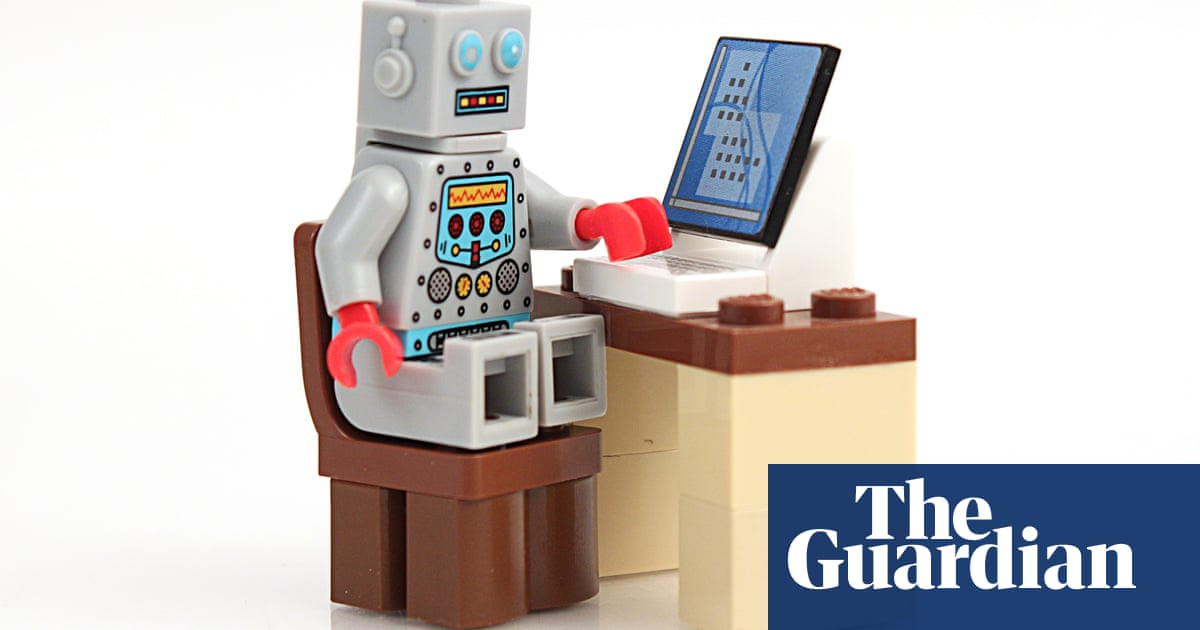In 2021, the web felt dead because algorithms were driving people to act like robots. Now, the robots are posting like people
• Don’t get TechScape delivered to your inbox? Sign up for the full article here
I know I’m real. And you, dear reader, know you’re real. But do you ever suspect that everyone else on the internet is acting strange? That the spaces you used to frequent feel a bit … dead? You aren’t alone. “Dead internet theory” first hit the web almost three years ago, propelled to the mainstream by an essay in the Atlantic by Kaitlyn Tiffany:
Dead-internet theory suggests that the internet has been almost entirely taken over by artificial intelligence. Like lots of other online conspiracy theories, the audience for this one is growing because of discussion led by a mix of true believers, sarcastic trolls and idly curious lovers of chitchat … But unlike lots of other online conspiracy theories, this one has a morsel of truth to it. Person or bot: Does it really matter?
On Twitter itself, after Musk rescued the site from the frying pan and tossed it in a volcano, an ill-conceived monetisation scheme has made it profitable to buy a blue checkmark, attach it to a large language model, and set it running wild replying to viral content. The social network now pays verified users a proportion of the ad revenue received from their own comment threads, turning the most viral posts on the site into a low-stakes all-bot battle royale.
Death permeates Google. The top of its search results is a valuable position – so valuable that businesses competing to be there have no spare money to actually write their articles. No problem: ChatGPT can churn something out in a second. Of course, that’s only valuable if the resultant visitors are humans who you can make money from. Bad news, because …
… across the web, bots account for around half of all internet traffic, according to research from cybersecurity firm Imperva. Almost one-third of all traffic is what the company calls “bad bots”, doing anything from ad fraud to brute force hacking attacks. But even the “good bots” are struggling to earn that categorisation: Google’s “crawler” was a welcome sight when it was updating your search entry, but less so when it was simply training an AI to repeat what you wrote without sending any users over.
And then there’s Crab Jesus. An unholy marriage of Facebook content farms, AI-generated imagery, and automated testing to work out what goes the most viral led to weeks of viral content featuring combinations of Jesus, crustaceans and female flight attendants. In one such image, Jesus was pictured eating shellfish wearing a jacket made of prawns. More confusing was the image of a sort of crab-centaur saviour walking along a beach arm-in-arm with what appears to be the entire crew from a long-haul flight. It was, at least, interestingly bizarre – a step up from the previous viral chum of the 122-year-old woman posing in front of her homemade birthday cake.
The supreme court on Monday rejected an appeal from Elon Musk over a settlement with securities regulators that requires him to get approval in advance of some tweets that relate to Tesla, the electric vehicle company he leads.
The justices did not comment in leaving in place lower-court rulings against Musk, who complained that the requirement amounts to “prior restraint” on his speech in violation of the first amendment. The ruling comes a day after he made an unannounced visit to China aimed at sealing a deal to roll out Tesla’s driver assistance features there. Continue reading...
http://dlvr.it/T6Zgjd
TechScape: On the internet, where does the line between person end and bot begin?
May 08, 2024
0


